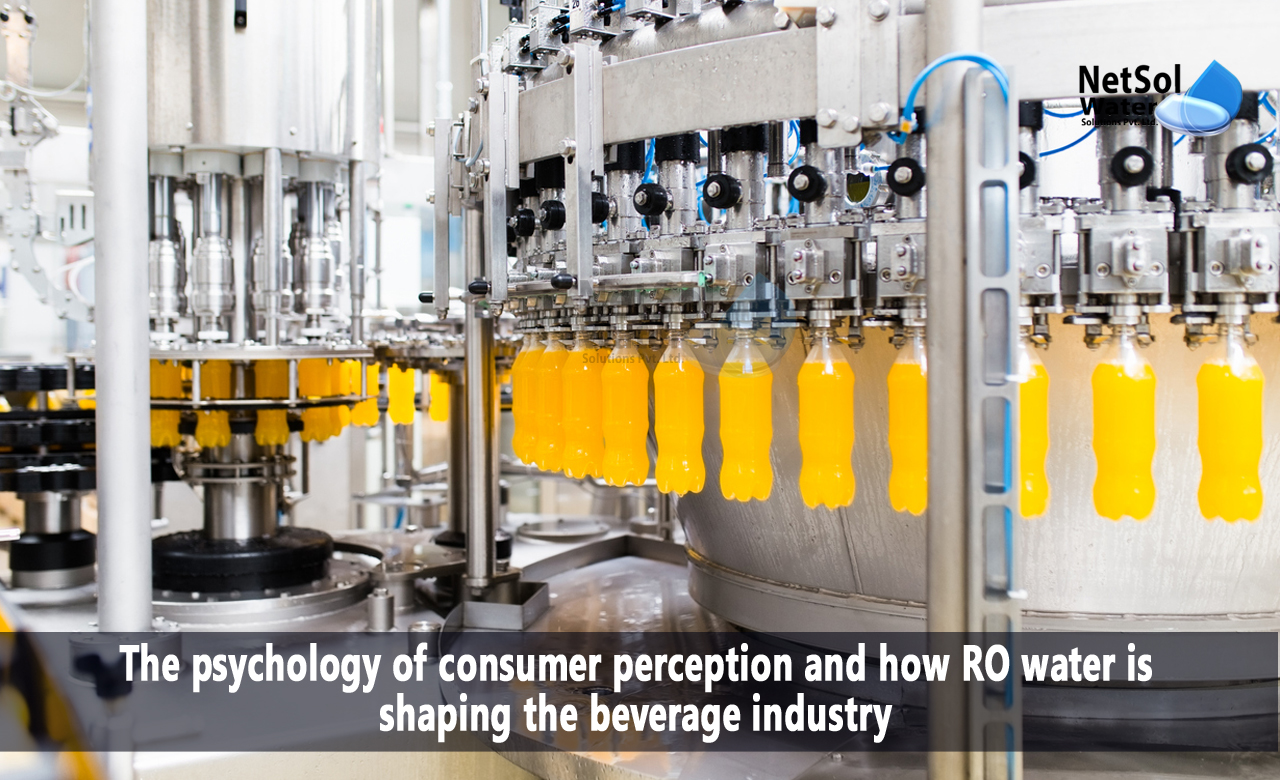How RO Water is Shaping the Beverage Industry?
Consumer perception plays a significant role in the success of any product, particularly in the beverage industry, where consumers are constantly seeking products that offer health benefits and are environmentally sustainable. The rise of commercial reverse osmosis (RO) water is one such example of how the psychology of consumer perception is shaping the beverage industry.
In this blog, we will explore the psychology of consumer perception and how RO water is shaping the beverage industry.
The Psychology of Consumer Perception
Consumer perception is the process by which consumers interpret and make sense of the information they receive about a product or service. This perception is influenced by a variety of factors, including previous experiences, cultural background, and personal beliefs.
In the beverage industry, consumer perception plays a vital role in the success of a product. Consumers are drawn to products that they perceive as healthy, sustainable, and environmentally friendly. They are also influenced by social and cultural factors, such as peer pressure, media exposure, and advertising.
RO Water and the Beverage Industry
Commercial RO water is gaining popularity in the beverage industry due to its perceived health benefits and environmental sustainability. RO water is treated through a process of reverse osmosis, where water is passed through a semi-permeable membrane to remove impurities, minerals, and contaminants.
The result is a purified water that is free from harmful substances such as lead, chlorine, and fluoride. This process also removes minerals and other substances that may affect the taste and smell of the water.
Perceived Health Benefits
Consumers perceive RO water as healthier than traditional tap water or bottled water. This perception is based on the belief that RO water is free from harmful contaminants and is, therefore, safer to drink. As a result, beverage companies are beginning to use RO water in their products to cater to this growing demand for healthier options.
Environmental Sustainability
RO water is also perceived as environmentally sustainable due to its low carbon footprint and reduced plastic waste. Consumers are becoming more environmentally conscious and are actively seeking products that are eco-friendly. By using RO water, beverage companies are tapping into this trend and promoting their products as sustainable and environmentally friendly.
Perceived Taste and Quality
Consumers are also beginning to associate RO water with higher quality and better taste. The removal of impurities and contaminants from the water is believed to result in a purer and more refreshing taste. As a result, beverage companies are incorporating RO water into their products to improve the taste and quality of their offerings.
Conclusion
The psychology of consumer perception plays a significant role in shaping the beverage industry, particularly with the rise of commercial RO water. Consumers are seeking products that offer health benefits and are environmentally sustainable, and beverage companies are responding by incorporating RO water into their products. The use of RO water is perceived to offer health benefits, sustainability, and improved taste and quality, which are all factors that influence consumer perception and purchasing decisions. As the beverage industry continues to evolve, it will be interesting to see how the psychology of consumer perception shapes its future.
If you are curious to know more, feel free to contact us at +91-9650608473 or enquiry@netsolwater.com



